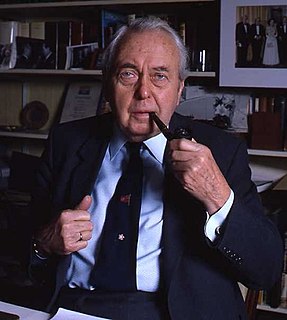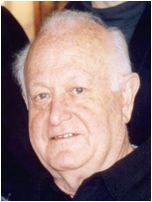Related Research Articles

Jonathan Lucas Hunt is a New Zealand politician, and was New Zealand's High Commissioner to the United Kingdom from 2005 to March 2008. He formerly served as Speaker of the New Zealand House of Representatives. He is a member of the Labour Party, and was until his retirement in 2005 the longest-serving MP in Parliament. Hunt is a member of the Order of New Zealand, New Zealand's highest civilian honour. Hunt was given the nickname the "Minister for Wine and Cheese" after his well-known liking of the combo.

The Treasurer of Australia is a high ranking official and senior minister of the Crown in the Government of Australia who is the head of the Ministry of the Treasury which is responsible for government expenditure and for collecting revenue. The Treasurer plays a key role in the economic policy of the government. The current Australian Treasurer is Josh Frydenberg whose term began on 24 August 2018.

Pierre Eugène Bérégovoy was a French politician who served as Prime Minister of France under President François Mitterrand from 2 April 1992 to 29 March 1993. He was a member of the Socialist Party and Member of Parliament for Nièvre's 1st constituency.

Marek Marian Belka is a Polish professor of Economics and politician, has served as a Prime Minister of Poland and Finance Minister of Poland in two governments. Former Director of the International Monetary Fund's (IMF) European Department and former Head of Narodowy Bank Polski. He has served as a Member of the European Parliament (MEP) since July 2019.

Derek Francis Quigley is a New Zealand former politician. He was a prominent member of the National Party during the late 1970s and early 1980s, and was known for his support of free market economics and trade liberalisation. Quigley left the National Party after clashing with its leadership, and later co-founded the ACT New Zealand party.

David Francis Caygill is a former New Zealand politician. Caygill was born and raised in Christchurch. He entered politics in 1971 as Christchurch's youngest city councillor at the age of 22. He served as a Member of Parliament (MP) from 1978 to 1996, representing the Labour Party. A supporter of Rogernomics, he served as Minister of Finance between 1988 and 1990. From 2010 to 2019, he was one of the government-appointed commissioners at Environment Canterbury.
The Australian Writers' Guild (AWG) is the professional association for Australian performance writers for film, television, radio, theatre, video and new media. The AWG was established in 1962. The AWG is a member of the Australian Council of Trade Unions.

Eric Samuel Heffer was a British socialist politician. He was Labour Member of Parliament for Liverpool Walton from 1964 until his death. His Working class background and consciousness fostered his left-wing politics. With 12,000 books in his home, he also admitted to being a bibliophile. Due to his experience as a professional joiner, he made a speciality of the construction industry and its employment practices, but was also concerned with trade union issues in general. He changed his view on the European Common Market from being an outspoken supporter to an outspoken opponent, and served a brief period in government in the mid-1970s. His later career was dominated by his contribution to debates within the Labour Party and he defended the Liverpool City Council.

The Isle of Man Government is the government of the Isle of Man. The formal head of the Isle of Man Government is the Lieutenant Governor, the personal representative of Elizabeth II. The executive head is the Chief Minister.

Tharman Shanmugaratnam is a Singaporean politician and economist serving as the Senior Minister of Singapore since 1 May 2019, after serving as Deputy Prime Minister and Finance Minister for eight years respectively. He is also Coordinating Minister for Social Policies, and advises the Prime Minister on economic policies. He chairs the National Jobs Council aimed at rebuilding skills and jobs in the wake of COVID-19. He is concurrently the Chairman of the Monetary Authority of Singapore (MAS), Singapore's central bank and financial regulator.

Marina von Neumann Whitman is an American economist, writer and former automobile executive. She is a professor of business administration and public policy at the University of Michigan's Ross School of Business as well as The Gerald R. Ford School of Public Policy.
Stanley Clinton-Davis, Baron Clinton-Davis, PC is a British politician and former solicitor. A member of the Labour Party, he served as Member of Parliament (MP) for Hackney Central from 1970 to 1983, and was a minister in the Labour governments of Prime Ministers Harold Wilson, James Callaghan and Tony Blair. He was European Commissioner in the Delors Commission (1985–1989). In 1990, he became a Life Peer as Baron Clinton-Davis, of Hackney in the London Borough of Hackney, sitting on the Labour benches in the House of Lords until his retirement in 2018. He changed his name to Stanley Clinton-Davis by deed poll.

The Labour Party governed the United Kingdom of Great Britain and Northern Ireland from 1974 to 1979. During this period, Harold Wilson and James Callaghan were successively appointed as Prime Minister by Queen Elizabeth II. The end of the Callaghan ministry was presaged by the Winter of Discontent, a period of serious industrial discontent. This was followed by the election of Conservative leader Margaret Thatcher in 1979.

Moshe Sanbar was an economist and Israeli public figure. He served as governor of the Bank of Israel during 1971–1976.

Norman Henry Lacy, former Australian politician, was a Victorian Government Minister from May 1979 to April 1982 who grew up in Richmond, Victoria and three times represented his state at national under age basketball championships. He completed university degrees in theology, sociology and management science and had a diverse career that included periods as an apprenticed plumber, an Anglican priest, a liberal parliamentarian, a management educator and an information technology industry executive. He was President of Self Employed Australia from 2008 until 2018. He is retired and lives in Wye River, Victoria.
Sir John Elliott Terry was a British film financier and lawyer who helped to found the National Film School and served as manager of the National Film Finance Corporation (NFFC) for over 20 years.
The National Film Finance Corporation (NFFC) was a film funding agency in the United Kingdom which operated from 1949 until it was wound up in 1985. The NFFC was established by the Cinematograph Film Production Act 1949, and further enhanced by the Cinematograph Film Production Act 1952, which gave the NFFC the power to borrow from sources other than the Board of Trade. The NFFC was abolished by the Films Act 1985.
Association of Independent Producers was founded in London, England, in March 1976 by Richard Craven.
The Department of Economic Development, Jobs, Transport and Resources (DEDJTR) is a former department of the Government of Victoria. It was created on 1 January 2015 by the government of Premier Daniel Andrews when the number of government departments was reduced from 9 to 7, and assumed responsibility for ministerial portfolios previously spread across 5 departments. It was abolished at the end of 2018 and divided into two new departments.
References
- ↑ The Future of the British Film Industry (Cmnd 6372), Report of the Prime Minister's Working Party
- ↑ Film Policy (Cmnd 9319), presented to Parliament 19 July 1984
- ↑ "Official British Media Reports" . Retrieved 2009-01-15.